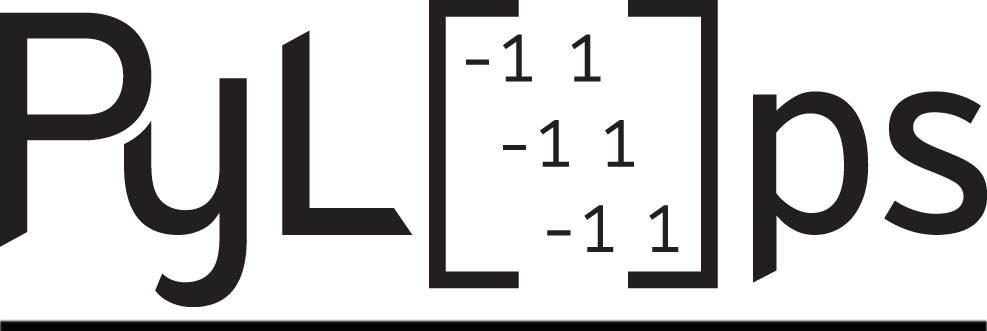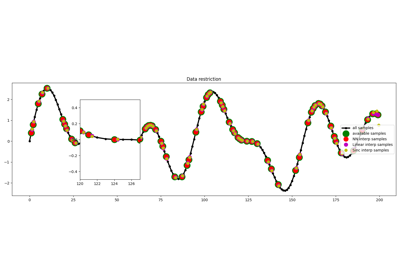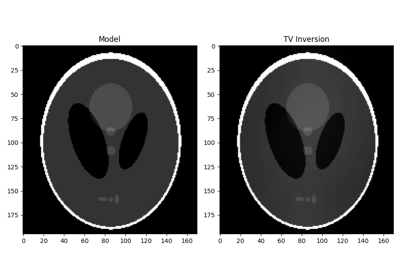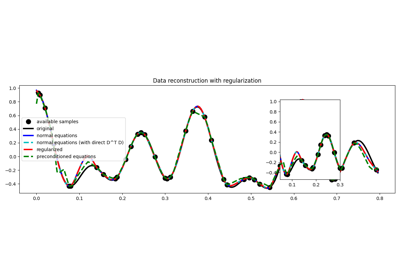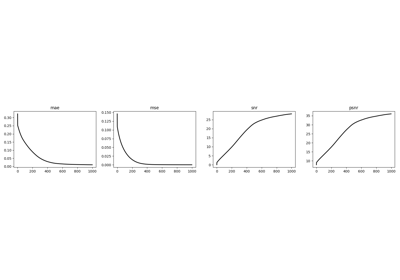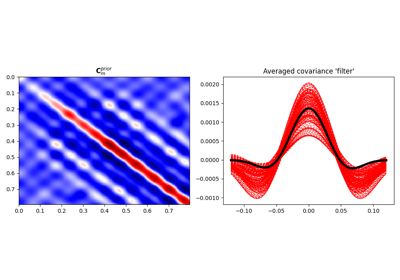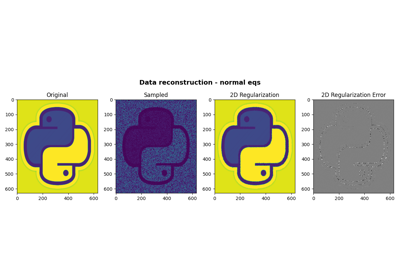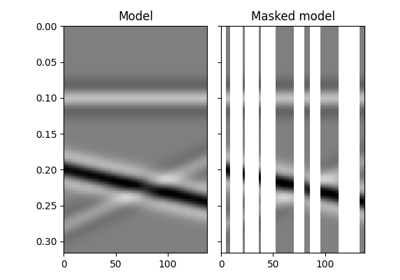pylops.Restriction#
- class pylops.Restriction(dims, iava, axis=-1, inplace=True, forceflat=None, dtype='float64', name='R')[source]#
Restriction (or sampling) operator.
Extract subset of values from input vector at locations
iavain forward mode and place those values at locationsiavain an otherwise zero vector in adjoint mode.- Parameters
- dims
listorint Number of samples for each dimension
- iava
listornumpy.ndarray Integer indices of available samples for data selection.
- axis
int, optional New in version 2.0.0.
Axis along which restriction is applied to model.
- inplace
bool, optional Work inplace (
True) or make a new copy (False). By default, data is a reference to the model (in forward) and model is a reference to the data (in adjoint).- forceflat
bool, optional New in version 2.2.0.
Force an array to be flattened after rmatvec. Note that this is only required when len(dims)=2, otherwise pylops will detect whether to return a 1d or nd array.
- dtype
str, optional Type of elements in input array.
- name
str, optional New in version 2.0.0.
Name of operator (to be used by
pylops.utils.describe.describe)
- dims
See also
pylops.signalprocessing.InterpInterpolation operator
Notes
Extraction (or sampling) of a subset of \(N\) values at locations
iavafrom an input (or model) vector \(\mathbf{x}\) of size \(M\) can be expressed as:\[y_i = x_{l_i} \quad \forall i=0,1,\ldots,N-1\]where \(\mathbf{l}=[l_0, l_1,\ldots, l_{N-1}]\) is a vector containing the indices of the original array at which samples are taken.
Conversely, in adjoint mode the available values in the data vector \(\mathbf{y}\) are placed at locations \(\mathbf{l}=[l_0, l_1,\ldots, l_{M-1}]\) in the model vector:
\[x_{l_i} = y_i \quad \forall i=0,1,\ldots,N-1\]and \(x_{j}=0\) for \(j \neq l_i\) (i.e., at all other locations in input vector).
- Attributes
Methods
__init__(dims, iava[, axis, inplace, ...])adjoint()apply_columns(cols)Apply subset of columns of operator
cond([uselobpcg])Condition number of linear operator.
conj()Complex conjugate operator
div(y[, niter, densesolver])Solve the linear problem \(\mathbf{y}=\mathbf{A}\mathbf{x}\).
dot(x)Matrix-matrix or matrix-vector multiplication.
eigs([neigs, symmetric, niter, uselobpcg])Most significant eigenvalues of linear operator.
mask(x)Apply mask to input signal returning a signal of same size with values at
iavalocations and0at other locationsmatmat(X)Matrix-matrix multiplication.
matvec(x)Matrix-vector multiplication.
reset_count()Reset counters
rmatmat(X)Matrix-matrix multiplication.
rmatvec(x)Adjoint matrix-vector multiplication.
todense([backend])Return dense matrix.
toimag([forw, adj])Imag operator
toreal([forw, adj])Real operator
tosparse()Return sparse matrix.
trace([neval, method, backend])Trace of linear operator.
transpose()
